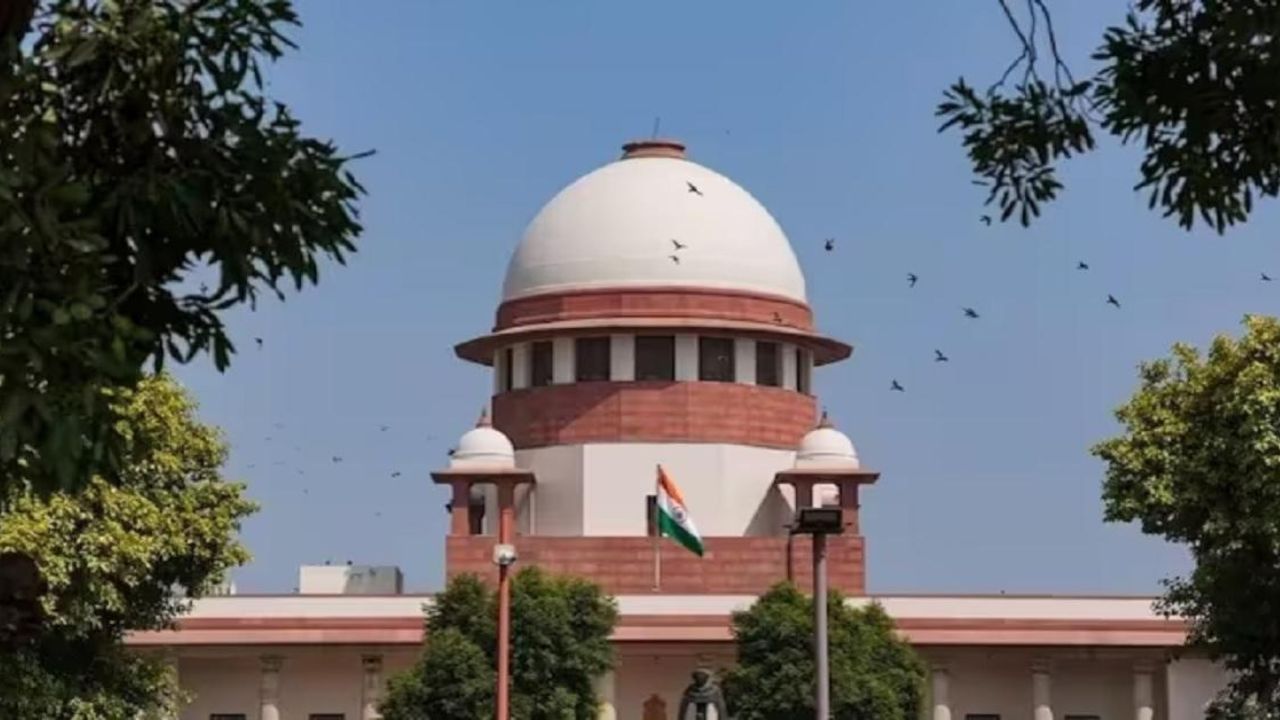A bench of Justices Sudhanshu Dhulia and Joymalya Bagchi directed the lawyer of Mohammad Javed, an accused in the murder of Kanhaiya Lal, to first rectify the mistakes present in the petition.

Supreme Court (Image Source: Internet)
New Delhi: The Supreme Court has refused to hear the petition seeking a stay on the release of the film Udaipur Files: Kanhaiya Lal Tailor Murder. The film is based on the murder of tailor Kanhaiya Lal in Udaipur in June 2022. A bench of Justices Sudhanshu Dhulia and Joymalya Bagchi directed the lawyer of Mohammad Javed, an accused in the murder of Kanhaiya Lal, to first rectify the mistakes present in the petition.
The bench directed to appeal before the regular bench
The petition states that the hearing of the Kanhaiya Lal murder case is still going on and the release of the film in the midst of the hearing may affect the right of the accused to a fair trial. The film Udaipur Files is scheduled to release on July 11. The bench refused to hear the petition before the release of the film and asked the petitioner's lawyer to first appeal before the regular bench.
The petition was filed by Mohammad Javed, who is an accused in the murder case of Kanhaiya Lal. The petition has sought a stay on the release of the film till the hearing of the case is completed. The petitioner says that the film appears to be communally provocative from its trailer and promotional material, and releasing the film at this time is likely to have a serious adverse effect on the ongoing proceedings.
Kanhaiya Lal was brutally murdered in Udaipur
It is noteworthy that Kanhaiya Lal, a tailor living in Udaipur, Rajasthan, was brutally murdered in June 2022 allegedly by Mohammad Riyaz and Mohammad Gaus due to a hate crime. The attackers had released a video claiming that the murder was due to sharing a post on social media in support of former BJP leader Nupur Sharma after her controversial remarks on Prophet Mohammad.
The case was investigated by the National Investigation Agency and the accused were booked under the stringent Unlawful Activities Prevention Act (UAPA), in addition to sections of the Indian Penal Code. This case is pending in the special NIA court in Jaipur.
The petitioner relied on Section 6 of the Cinematograph Act, which gives special revisional powers to the Central Government to revoke the certification of a film in public interest, and argued that this power ought to be invoked.